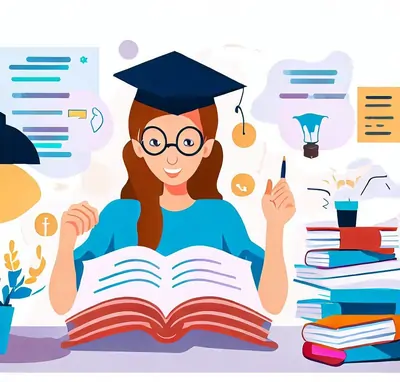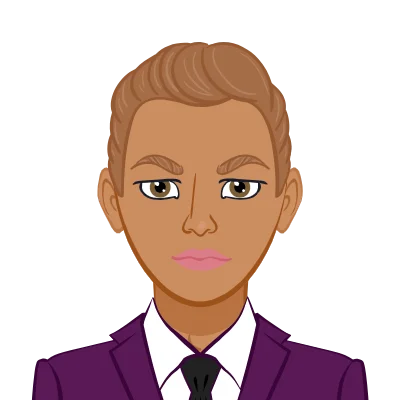In the quest for academic excellence, mastering one's studies is a crucial goal for students. This pursuit demands not only dedication and diligence but also the implementation of effective study techniques and the utilization of valuable resources. The heading, "Mastering Your Studies: Effective Study Techniques and Resources" encapsulates the essence of this endeavor.To begin with, effective study techniques form the foundation of academic success. Students need to adopt methods that cater to their individual learning styles and preferences. These may include active learning, where engagement with the material through discussions and problem-solving is emphasized. Additionally, techniques like spaced repetition, mind mapping, and summarizing key points aid in retaining information efficiently. Furthermore, the integration of various resources significantly enhances the learning experience. Educational technology, such as online courses, interactive platforms, and digital libraries, opens up vast opportunities for comprehensive learning beyond the confines of traditional classrooms. Moreover, seeking guidance from teachers, peers, and academic advisors provides valuable insights and support. Balancing study techniques with the right resources is paramount. Effective time management, setting realistic goals, and maintaining a healthy study routine contribute to an optimized learning process. It is essential to recognize the power of discipline and consistency in achieving academic excellence.

The Fundamentals of Successful Studying
The Fundamentals of Successful StudyingStudying is a fundamental pillar of academic achievement and personal development, encompassing not only the realm of formal education but also a lifelong pursuit of knowledge. Regardless of your educational level or learning objectives, mastering effective study techniques is paramount to gaining a deeper understanding of subjects and retaining valuable information. This blog aims to delve into the diverse array of study methods and resources that have the potential to transform your learning experience and boost your overall productivity.At its core, successful studying is about more than just memorizing facts and figures; it involves the cultivation of critical thinking, analytical skills, and a genuine curiosity for learning. One of the key elements to unlock the door to successful studying is time management. Allocating specific time blocks for focused studying and adhering to a consistent schedule can enhance productivity and prevent procrastination.
Create a Structured Study Schedule
One of the most critical factors in successful studying is establishing a structured study schedule. Allocate specific time slots for each subject or topic you need to cover. Consistency is key, so make sure to adhere to your schedule diligently. Having a well-organized plan will not only help you manage your time efficiently but also ensure you cover all the necessary material.
Utilize Active Learning Techniques
Passive learning, such as re-reading notes or textbooks, can be less effective compared to active learning methods. Active learning engages your mind and enhances your comprehension and critical thinking skills. Techniques like summarizing information in your own words, teaching concepts to someone else, or participating in group discussions can significantly boost your understanding and retention.
Take Advantage of Technology
In today's digital age, technology offers numerous tools and resources to aid in your studies. Educational apps, online courses, and virtual study groups can supplement your learning experience and provide additional explanations and examples. Embrace technology as an ally in your academic journey to make the most of your study time.
Enhancing Your Learning with Effective Resources
A well-structured study plan serves as a fundamental pillar for successful learning; however, it is equally crucial to harness the power of appropriate resources to elevate your educational journey. These invaluable resources have the potential to take your learning experience to unprecedented heights, providing you with the tools and knowledge necessary for growth and understanding.
One of the most valuable resources is an extensive library. Books, both in physical and digital formats, offer a vast array of information on various subjects. From classic literature to cutting-edge research, books are reservoirs of knowledge that can deepen your understanding and broaden your perspectives.The internet is another indispensable resource that opens up a world of information at your fingertips. Online courses, educational websites, and video tutorials provide interactive and engaging learning experiences. Additionally, virtual communities and forums enable you to connect with like-minded learners and experts from around the globe, fostering an environment of collaborative learning.
Libraries and E-Books
Libraries remain an invaluable resource for students and learners alike. They provide access to an extensive collection of books, journals, and research materials. Additionally, with the advent of e-books, you can access digital copies of many academic resources online. These resources are often free or more affordable than purchasing physical books.
Open Educational Resources (OER)
Open Educational Resources (OER) are freely accessible materials that support teaching and learning. These resources include textbooks, lecture notes, videos, and interactive simulations, which are often shared under licenses that allow for modification and redistribution. OER can be a great supplement to your regular course materials and provide alternative explanations and examples.
Advanced Study Techniques for Optimal Learning
Advanced study techniques play a crucial role in optimizing learning outcomes as students advance in their educational journey. As the subjects become more intricate and demanding, it becomes essential to adopt effective methods that can efficiently handle the complexity. These techniques are designed to enhance comprehension, retention, and application of knowledge, ultimately leading to improved academic performance.One such technique is active learning, where students actively engage with the material through discussions, problem-solving, and practical applications. This method encourages critical thinking and deep understanding of the subject matter. Additionally, using mnemonic devices, such as acronyms or visualization techniques, can aid in memorization and recall of important information.Another advanced study approach involves breaking down large concepts into smaller, manageable chunks.
The Feynman Technique
The Feynman Technique is a popular method for mastering difficult concepts. Named after the Nobel Prize-winning physicist Richard Feynman, this technique involves explaining a topic in simple terms as if you were teaching it to someone else. By breaking down complex ideas into layman's terms, you not only enhance your understanding but also identify any gaps in your knowledge.
Mind Mapping
Mind mapping is a visual technique that can help you organize information and create connections between different concepts. Start with a central idea and branch out to related subtopics. This approach can be particularly useful for subjects that involve a lot of interconnected information, such as history or science.
The Power of Collaboration: Study Groups and Peer Learning
Collaboration is a powerful tool that can significantly enhance one's learning experience. The efficacy of study groups and peer learning lies in their ability to bring together individuals with diverse knowledge, ideas, and approaches. When students collaborate, they get the opportunity to view a subject from multiple angles, helping them to grasp concepts more deeply and holistically.
By engaging in study groups, students can actively participate in discussions, ask questions, and clarify doubts. Explaining concepts to others not only solidifies their understanding but also sharpens their communication skills. Additionally, group members can share valuable resources, such as notes, study guides, and supplementary materials, further enriching their learning process.One of the greatest benefits of peer learning is the motivation it fosters. The camaraderie and shared goals within the group create a conducive environment for staying focused and accountable.
Benefits of Study Groups
Study groups provide a platform for discussing complex topics, solving problems collectively, and sharing study resources. They also offer social support and motivation, reducing the feelings of isolation that sometimes come with studying alone.
Effective Study Group Strategies
To make the most of your study group sessions, establish clear objectives for each meeting, and ensure that all participants actively contribute. Rotate leadership roles to keep the group engaged, and use study sessions to clarify doubts and reinforce each other's understanding.
Virtual Study Groups
In recent times, virtual study groups have gained popularity due to their flexibility and accessibility. Online platforms and video conferencing tools allow students from different locations to collaborate effectively. Consider joining virtual study groups to connect with peers beyond the confines of your physical location.
Conclusion
In conclusion, effective study techniques and resources play a pivotal role in achieving successful learning outcomes. By structuring a well-organized study schedule, engaging in active learning practices, and harnessing the power of technology, students can optimize their study time and significantly enhance their academic performance. Furthermore, the utilization of diverse learning resources, such as libraries, open educational resources (OER), and advanced study techniques, can further deepen their understanding of complex subjects and foster a holistic approach to learning.
Emphasizing collaboration through study groups and peer learning creates a conducive environment for knowledge exchange, providing fresh perspectives and novel insights into various topics. This collaborative spirit not only enriches one's learning experience but also nurtures essential teamwork and communication skills that are valuable in any professional setting.Whether pursuing formal education or engaging in continuous self-improvement as a lifelong learner, adopting these effective study techniques and utilizing available resources can undeniably expedite one's learning journey. It is essential to recognize that learning is a continual process, and the journey towards academic and personal growth requires constant adaptation and improvement of study strategies.
